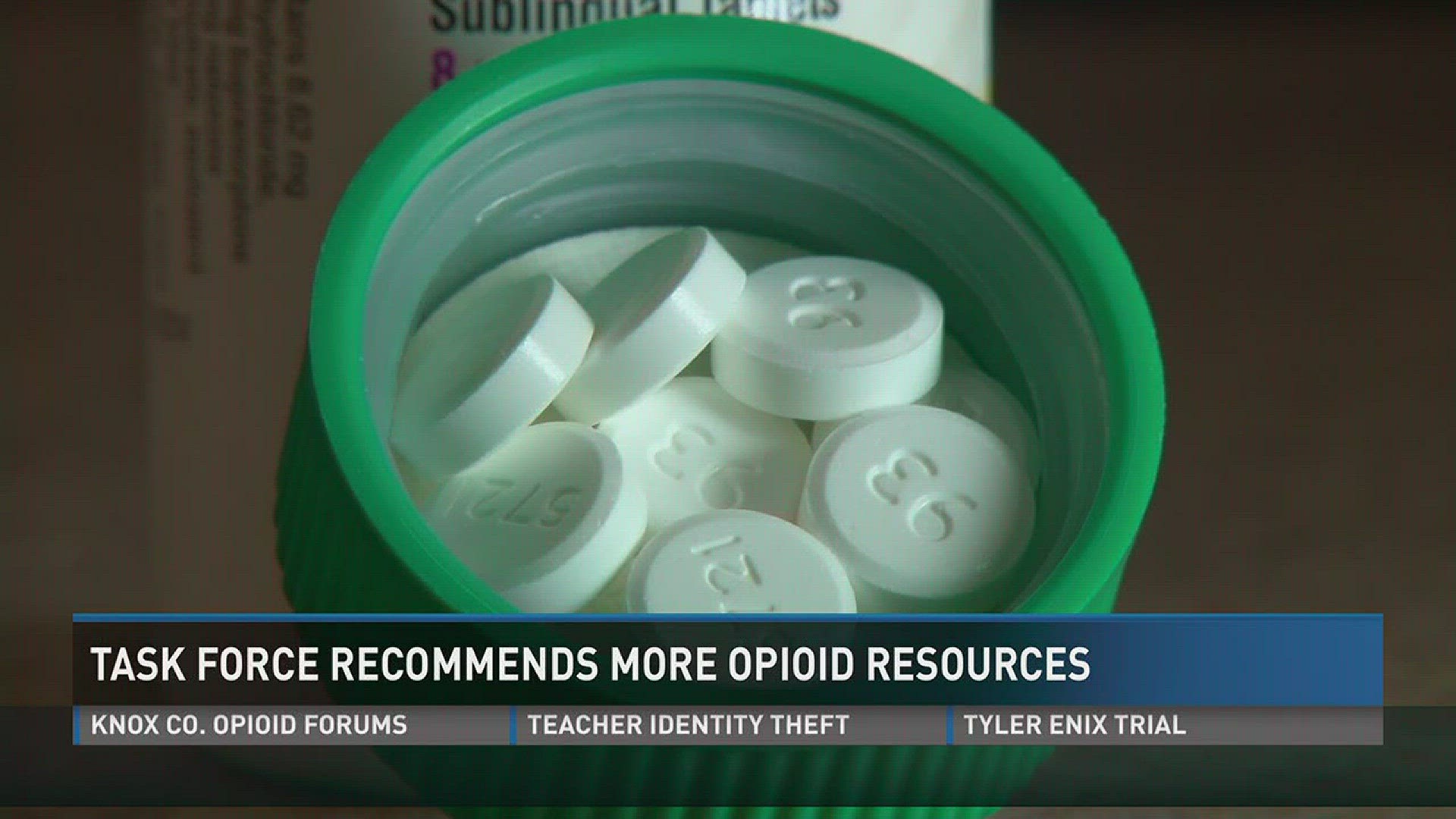The House of Representatives Task Force on Opioid and Prescription Abuse released recommendations for battling the opioid epidemic in Tennessee.
Included in the nearly two dozen recommendations are an increase in TBI agents to combat opioid abuse, limitations to prescription dosages, and a plan to add lesson plans about opioid and drug use to schools.
Other recommendations include:
- Adding 25 agents to the Tennessee Bureau of Investigation in the next year
- More limits on the number of controlled drugs prescribed in emergency rooms and by healthcare professionals. Currently there is a 30-day pill limit.
- Establishing a Tennessee Commission to Combat Drug Abuse.
- Urging the White House to renew funding to combat opioid addiction. Under the Obama Administration, Tennessee was awarded $13.8 million
- Encouraging the Department of Health, law enforcement and medical examiners to develop consistent approaches to determining overdose deaths
Some people who treat drug addiction every day believe these recommendations are a big step in the right direction.
"This is a decade long issue that now our state leadership has taken hold of and it's going to be good for us," said Jerry Vagnier, president and CEO of the Helen Ross McNabb Center. "Access to treatment is still the number one thing that we're seeing that still needs to be addressed."
Vagnier applauds the state's effort to bring an end to the epidemic by looking at the treatment, prevention and policy sides of the problem.
"We can address people who currently have problems, but we really need to get ahead of it for the long term by doing prevention work," Vagnier says. "The $6 million that went into place last year that we're seeing for the budget this year is going to serve thousands of Tennesseans this year."
John Sweet is a recovering addict. He spent two years in prison on drug related charges.
"You go from the weaker stuff to something a little stronger and a little stronger. A little bit becomes more and more and more. It's a snowball to hell," Sweet said. "Before you know it, it's gotta have it every day just to be normal."
He hopes the state's efforts will stop others from making the mistakes he made.
"I've lost everything. I even lost my freedom," Sweet said. "I just want to keep somebody else from going down the path that I went through."

